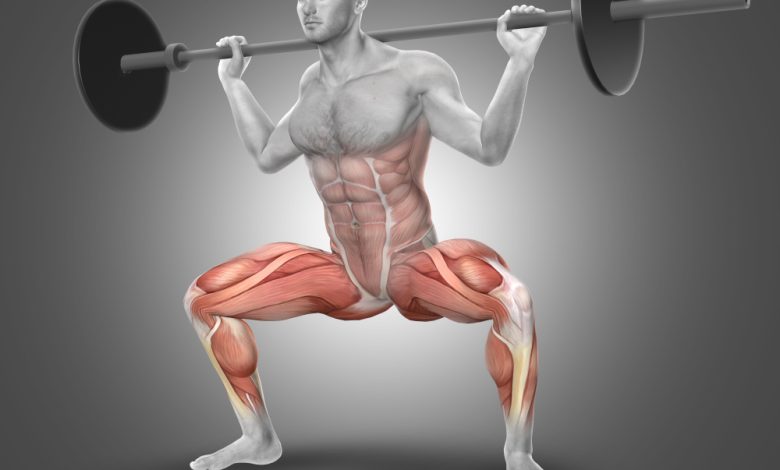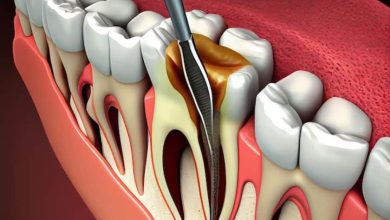Pectoral Muscle Tear and Pectoralis Major Tendonitis: Causes, Symptoms, and Treatments

Introduction
The pectoral muscle, also known as the pec, is one of the largest and most powerful muscles in the human body. It is responsible for a wide range of movements, including pushing, pulling, and lifting. However, it is also susceptible to injury, particularly in athletes and individuals who engage in high-intensity workouts. In this article, we will discuss the causes, symptoms, and treatment options for torn pectoral muscle, torn pec recovery, pectoral muscle tear, and pectoralis major tendonitis.
What is a Torn Pectoral Muscle?
A torn pectoral muscle is a condition where the pectoral muscle, or the tendon that connects it to the upper arm bone, is partially or completely torn. This type of injury is common in weightlifters, bodybuilders, and athletes who participate in contact sports like football and rugby.
Causes of a Torn Pectoral Muscle
The most common cause of a torn pectoral muscle is overexertion, particularly when performing exercises that involve heavy lifting, pushing, or pulling. Other potential causes include:
- Direct trauma to the chest, such as a blow or fall
- Poor technique or form during exercises
- Muscle imbalances or weakness
- Degeneration of the muscle or tendon due to aging
Symptoms of a Torn Pectoral Muscle
The symptoms of a torn pectoral muscle can vary depending on the severity of the injury. However, some common symptoms include:
- Pain or discomfort in the chest or upper arm
- Swelling and bruising around the injured area
- Weakness or loss of strength in the affected arm
- Difficulty lifting or moving the arm
- A popping or tearing sensation at the time of injury
Torn Pec Recovery: Treatment Options
If you suspect you have a torn pectoral muscle, it is important to seek medical attention immediately. Your doctor may recommend one or more of the following treatment options, depending on the severity of your injury:
- Rest and immobilization: Resting the affected arm and avoiding any activities that may aggravate the injury is crucial in the early stages of recovery. Your doctor may recommend wearing a sling or other type of immobilizer to keep the arm still.
- Physical therapy: Once the initial pain and inflammation have subsided, a physical therapist can help you develop a customized exercise plan to help restore strength, flexibility, and range of motion to the affected arm.
- Medications: Over-the-counter pain relievers like ibuprofen or acetaminophen can help alleviate pain and reduce inflammation. In more severe cases, your doctor may prescribe stronger pain medications or corticosteroid injections to help reduce swelling.
- Surgery: In cases where the muscle or tendon is completely torn, surgery may be necessary to repair the damage. This typically involves reattaching the muscle or tendon to the bone using sutures or anchors.
What is Pectoral Muscle Tear?
A pectoral muscle tear is a similar condition to a torn pectoral muscle, but it specifically refers to a partial or complete tear of the muscle itself, rather than the tendon that connects it to the bone. This type of injury is less common than a torn pectoral muscle but can still occur in individuals who engage in high-intensity workouts
Causes of Pectoral Muscle Tears
The causes of a pectoral muscle tear are similar to those of a torn pectoral muscle. The most common cause is overexertion, particularly during exercises that involve heavy lifting or pushing. Other potential causes include:
- Direct trauma to the chest, such as a blow or fall
- Poor technique or form during exercises
- Muscle imbalances or weakness
- Degeneration of the muscle due to aging
Symptoms of Pectoral Muscle Tear
The symptoms of a pectoral muscle tear can also vary depending on the severity of the injury. However, some common symptoms include:
- Pain or discomfort in the chest or upper arm
- Swelling and bruising around the injured area
- Weakness or loss of strength in the affected arm
- Difficulty lifting or moving the arm
- A popping or tearing sensation at the time of injury
Treatment for Pectoral Muscle Tear
The treatment for a pectoral muscle tear is similar to that of a torn pectoral muscle. Rest and immobilization are crucial in the early stages of recovery, followed by physical therapy to help restore strength, flexibility, and range of motion to the affected arm. Over-the-counter pain relievers and corticosteroid injections can also help alleviate pain and reduce inflammation. In severe cases, surgery may be necessary to repair the damage.
What is Pectoralis Major Tendonitis?
Pectoralis major tendonitis is a condition where the tendon that connects the pectoral muscle to the upper arm bone becomes inflamed and irritated. This type of injury is common in individuals who engage in repetitive overhead activities, such as throwing a ball or performing overhead presses.
Causes of Pectoralis Major Tendonitis
The most common cause of pectoralis major tendonitis is overuse, particularly when performing repetitive overhead activities. Other potential causes include:
- Poor technique or form during exercises
- Muscle imbalances or weakness
- Degeneration of the tendon due to aging
Symptoms of Pectoralis Major Tendonitis
The symptoms of pectoralis major tendonitis can include:
- Pain or discomfort in the front of the shoulder or upper arm
- Swelling and tenderness around the affected area
- Weakness or loss of strength in the affected arm
- Difficulty lifting or moving the arm
- A popping or clicking sensation when moving the arm
Treatment for Pectoralis Major Tendonitis
The treatment for pectoralis major tendonitis typically involves rest and immobilization, followed by physical therapy to help restore strength, flexibility, and range of motion to the affected arm. Over-the-counter pain relievers and corticosteroid injections can also help alleviate pain and reduce inflammation. In severe cases, surgery may be necessary to repair the damaged tendon.
About Complete Medical Wellness
If you are experiencing symptoms of a pectoral muscle tear or pectoralis major tendonitis, contact Complete Medical Wellness at 22 MADISON AVE, Suite 301-B, PARAMUS NJ 07652 or call us at (877)-241-2772 to schedule an appointment with one of our healthcare providers. We are committed to helping patients achieve optimal health and wellness.
Conclusion
In conclusion, torn pectoral muscle, torn pec recovery, pectoral muscle tear, and pectoralis major tendonitis are all common injuries that can affect athletes, weightlifters, and individuals who engage in high-intensity workouts. If you suspect you have any of these conditions, it is important to seek medical attention immediately. With proper treatment and care, most individuals can make a full recovery and return to their normal activities.




